When ‘Cold Feet Syndrome’ Puts an Agency Sale on Ice
When ‘Cold Feet Syndrome’ Puts an Agency Sale on Ice
With the winter season upon us, there’s perhaps no better time to examine the mysterious phenomenon of what we refer to as “Cold Feet Syndrome,” a sometimes puzzling set of circumstances that cause a surprising number of PR agency CEOs to back out of a previously-agreed-to sale of their firm to a buyer agency at the eleventh hour.

As experienced advisors in mergers and acquisitions within the public relations and digital marketing industries for more than a decade now, we’ve repeatedly witnessed CEOs of seller firms spend months in negotiation with a buyer agency, eventually agreeing in principle to the terms of the deal, and then suddenly having a change of heart at the last minute for reasons that leave the buyer, my partner Art Stevens and me shaking our heads in disbelief. And no effort by us or the buyer to make things right can affect the outcome of the deal.
Here are just two examples from our annals:
After several months of good-faith negotiations between buyer and seller, the buyer firm’s attorney prepared a requisite contract containing the standard at-will employment provision that the seller could be dismissed “without cause” at any time. The buyer didn’t catch the clause, and because the document was hastily sent directly by the buyer to the seller — effectively bypassing The Stevens Group — we were precluded from objecting to what literally turned out to be the deal’s “death sentence.” Upon receiving the document, the seller became irate and called the buyer to complain. The buyer apologized and immediately offered to have the contract revised, but it was too late: The seller felt duped, lost trust in the seller and walked away from the deal.
After extended negotiations between buyer and seller, it was mutually understood that upon consummation of the transaction, the seller would become an employee of the buyer’s firm, reporting directly to the person at the buyer agency with whom the seller had been dealing almost exclusively up to that point. However, just prior to the sale’s closing, the buyer’s finance director interposed, requesting clarification on several matters uncovered during due diligence. He also informed the seller that the seller’s firm would be subject to ongoing financial performance reviews. The seller was deeply offended at what was actually the buying firm’s standard operating procedure for all acquisitions, and chose to walk away entirely from an excellent deal, rather than simply talk to her boss-to-be, whom she respected and trusted.
Rational and irrational thinking
Why would otherwise savvy businesspeople abruptly terminate a deal they had been working on with a buyer for months over apparently simple misunderstandings without even affording the buyer an opportunity to make amends? After all, lovers of Francis Ford Coppola’s “The Godfather” are more than aware of the films’ oft-used adage: “It’s not personal. It’s strictly business.”
To understand more about the thought processes behind a seller’s perplexing actions in these situations, I spoke with David Popple, PhD, President and Founder of Psynet Group, an international consultancy that advises clients on issues involving human resources and corporate psychology. His two decades of work in the areas of critical and strategic thinking have frequently been applied to the mediation of workplace disputes at the executive level.
“This ‘cold feet syndrome’ is essentially a three-step process,” explained Dr. Popple. “First, the seller rationally evaluates the merits of the deal. Then something causes the seller to experience an intensely negative emotional reaction, spurring irrational thought. Lastly, the seller rationalizes that emotional reaction by withdrawing from the situation entirely.”
Suddenly, the seller has gotten a case of cold feet, and the buyer may never even receive a proper explanation for it. Rather, the buyer’s e-mails don’t receive replies. Repeated phone calls are not returned.
‘Mini-death’ fear factor
The average owner of a small- to-mid-sized PR firm has been running their built-from-scratch company for several years by the time they seriously consider selling it. By that point, according to Dr. Popple, the business has essentially become a physical extension of its owner. “The prospect of surrendering the entity to an outside buyer induces trepidation,” he said.
“It’s almost like a personal ‘mini-death,’” added Dr. Popple. “The seller becomes convinced that should the deal happen, they’re going to lose a part of themselves.”
The seller may also feel they’ll resent having to take orders from a new boss or they’ll experience anxiety at seeing their clients handled differently within the buyer’s firm. Hence, the decision not to complete the transaction becomes an avoidance behavior for the seller — even despite the lures of healthy sale proceeds, generous earn-out bonuses and an improved work-life balance.
And while the business world is full of failed mergers, cold feet syndrome may be more common in the PR industry than in other business segments.
“PR firm owners are a unique breed,” said Dr. Popple. “These are highly entrepreneurial people who spend every day carefully managing their clients’ images and branding. Therefore, it’s no surprise that the seller of a PR firm may undergo their own personal identity crisis, especially when they’re on the verge of potentially giving up the reins of their firm to someone else.”
Don’t go it alone
Not every merger or acquisition in the PR industry falls apart at the last minute. The vast majority of transactions proceed relatively smoothly due to strong relationships and close coordination between buyers, sellers, and their respective financial and legal advisors. However, if one of the parties is going to get cold feet at the last minute, it’s almost always going to be the seller, not the buyer. Simply knowing that this phenomenon exists can help sellers to better manage the emotional rollercoaster that invariably precedes the sale of their PR firm.
Emotions can occasionally get the best of us, even when we know that we shouldn’t let these factors taint our decision-making.
Remember: “It’s not personal. It’s strictly business.” That’s why it’s critical for a PR firm owner considering the sale of their practice to have objective counsel at their side throughout the entire sales process.
Article originally published on ODWYERPR.COM.
The post When ‘Cold Feet Syndrome’ Puts an Agency Sale on Ice first appeared on The Stevens Group | PR Agency Merger & Acquisition Consultants.
THE STEVENS GROUP NEWS FEED




















